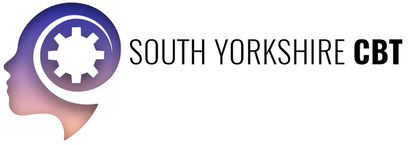Personality Disorders
Cognitive Behavioral Therapy (CBT) can be effective in treating various types of personality disorders by addressing the thoughts, emotions, and behaviors that contribute to the symptoms and challenges associated with these disorders. Here’s how CBT can benefit individuals with different personality disorders:
Borderline Personality Disorder (BPD): CBT can help individuals with BPD develop skills to manage intense emotions, improve impulse control, and address self-destructive behaviors. CBT may involve identifying and modifying negative thought patterns, developing emotion regulation skills, improving interpersonal skills, and addressing self-sabotaging behaviors. CBT can also help individuals with BPD develop a more balanced and realistic perception of themselves and others.
Narcissistic Personality Disorder (NPD): CBT can be used to help individuals with NPD develop more realistic and flexible thinking patterns, improve self-awareness, and enhance interpersonal skills. CBT may involve challenging and modifying grandiose or entitled beliefs, improving empathy and perspective-taking skills, and addressing maladaptive behaviors that stem from a need for excessive admiration or attention.
Avoidant Personality Disorder (AvPD): CBT can help individuals with AvPD challenge and modify negative self-beliefs, reduce avoidance behaviors, and improve social skills. CBT may involve addressing and challenging cognitive distortions related to social interactions, developing coping strategies for managing social anxiety, and gradually confronting and tolerating feared social situations.
Obsessive-Compulsive Personality Disorder (OCPD): CBT can be used to help individuals with OCPD identify and modify rigid and perfectionistic thinking patterns, reduce excessive focus on details, and improve flexibility and adaptability. CBT may involve challenging and modifying perfectionistic beliefs, developing more realistic standards, and addressing rigid behaviors that stem from a need for excessive control or order.
Dependent Personality Disorder (DPD): CBT can help individuals with DPD develop more autonomous and assertive behaviors, challenge and modify beliefs related to dependence, and improve self-esteem and self-efficacy. CBT may involve addressing and challenging cognitive distortions related to self-worth and dependence, developing coping strategies for managing fears of abandonment or rejection, and improving assertiveness and problem-solving skills.
Antisocial Personality Disorder (ASPD): CBT can be used to help individuals with ASPD develop insight into their thoughts, feelings, and behaviors, and work towards reducing impulsive and aggressive behaviors. CBT may involve developing emotional regulation skills, improving empathy and perspective-taking skills, and addressing cognitive distortions that contribute to antisocial behaviors.

It’s important to note that personality disorders are complex and may require a tailored approach based on the individual’s unique needs and symptoms. CBT is often used in conjunction with other therapeutic modalities and may be part of a comprehensive treatment plan that includes other evidence-based therapies, medication, and supportive interventions. A qualified mental health professional can assess and determine the most appropriate treatment approach for individuals with personality disorders.

CBT TO HELP TREAT PERSONALITY DISORDERS
Contact Clare today more information about the services we can offer.

